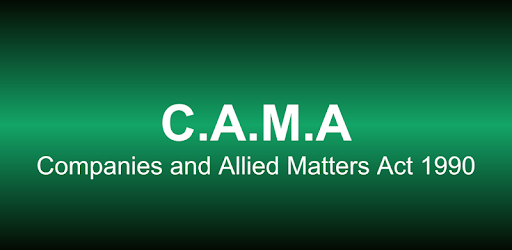HOW START-UPS AND SMALL BUSINESSES IN NIGERIA CAN BENEFIT FROM THE NEW CAMA BILL

HOW START-UPS AND SMALL BUSINESSES IN NIGERIA CAN BENEFIT FROM THE NEW CAMA BILL
In Nigeria, the Small and Medium Scale Enterprises (SMEs) is the driving force and establish an important mainstay of the Nigerian economy. A few years ago, SME is reported to represent close to 90 percent of the industrial but informal sector in terms of the number of enterprises. Economically, this sector is at the centre of sustainable development of the country and its importance can better be understood in relation to the structure of the Nigerian economy with many performance contributions as the source of technology innovation and employment.
On May 15, 2018, the 8th Senate of the Federal Republic of Nigeria passed the new Companies and Allied Matters Act (CAMA) bill into law after going through the third reading on the floor of the upper chamber of the national assembly. It is said to be one of the biggest business reform bills passed in Nigeria in over 28 years. The repeal and re-enactment of the Companies and Allied Matters Act (CAMA) was the result of a collaborative effort among the Senate and key stakeholders in the business community.
With regards to creating an enabling environment for start-ups in the country, this is one of the best move by the Government. But what are the direct effects of the CAMA bill on small businesses and start-ups in Nigeria?
The new Act when signed into law would have far-reaching effect on the economy and give birth to a new dawn for small business and start-ups in the country, specifically on the activities of small and medium size businesses. Some of the benefits/direct effects of the bill on small businesses are highlighted below;
Single Member Companies/ One-man Company
By the provision of this new bill, it possible for a single person to form and run a private company. This is good news for budding start-ups and young entrepreneurs because it has totally resolved business registration bottlenecks. A lot of businesses have been forced into unnecessary partnerships because prior to the passage of this bill, to legally own a business in Nigeria, you needed to provide at least two or more people as co-owners of the business. This provision is consistent with what is obtainable in several other advanced economies.
Introduction of Limited Liability Partnerships
The bill creates a new form of legal identity for businesses in Nigeria known as the ‘LLP’ (Limited Liability Partnership). The essential feature of the Limited Liability Partnership is that it combines the organizational flexibility and tax status of a partnership with limited liability for its members.
Ease of reduction of share capital
To ease the process of doing business, amendments have been proposed in the Bill to the process by which a company can reduce its share capital, by enabling private companies to reduce share capital of such companies if a special resolution to that effect is passed, without the added burden of applying to court for a confirmation of the reduction.
The bill has also reduced the minimum share capital for companies and start-up in Nigeria. Evidently, this will encourage more investments and create new jobs.
Optional requirement to have a Company Secretary
The Bill seeks to further reduce the regulatory burden of having a company secretary on small companies. The requirement to have a Company secretary will be limited to public companies, thereby making it optional for small businesses.
Exemption from holding Annual General Meeting
The new CAMA bill removes some unnecessary regulatory provisions such as the requirement for annual general meetings. Small businesses and companies having a single shareholder would no longer be mandatorily required to convene and hold Annual General Meetings This would make business ownership and registration easy, as the bill provides an environment for small business to start and grow.
Exemption from Audit and Fewer reporting obligations for small companies
The proposed CAMA contains provision which exempt companies that have not carried on any business since its incorporation or whose turnover in a financial year is not more than N10 million and the balance sheet total is not more than N5million from the requirement to have its financials audited in respect of that financial year. However, such a company must not at any time within the financial year in question carried on business as an insurance company, a bank or such other company as may be prescribed by the Commission.
Another impact of the Act is to reduce the financial reporting obligations of small companies. Such companies, as stated above will be exempt from the yearly audit process. This invariably means that cost is reduced, and more money can be ploughed back into the business for expansion.
Reduction in Time and Cost for Setting up a Company:
The new bill now lets you register your business from anywhere in the country via the e-registration portal. Now, people can register their small businesses from the comfort of their homes without having to go through all the previous rigorous processes.
This, in no doubt, will largely ease the means of registering business in Nigeria as all the hassles related to the manual registration of Company can now be dispensed with.
Although the Commission has since adopted e-registration, there was no federal legislation to that effect. This anomaly has now been fixed by the proposed CAMA.
CONCLUSION
The introduction of the new provisions highlighted above would greatly improve the ease of doing business in Nigeria and has a lot of economic benefits. Small business can now access loans due to their legal entity status and more people will be willing to do business with small registered entities. It is hoped that it will soon be assented to by the President of the Federal Republic of Nigeria.


